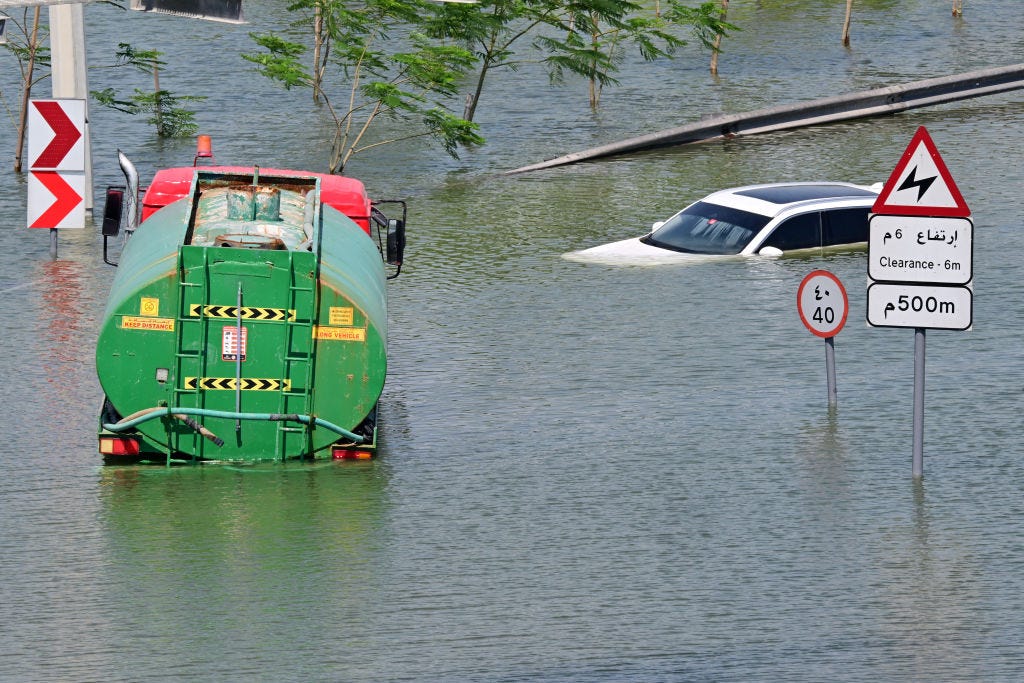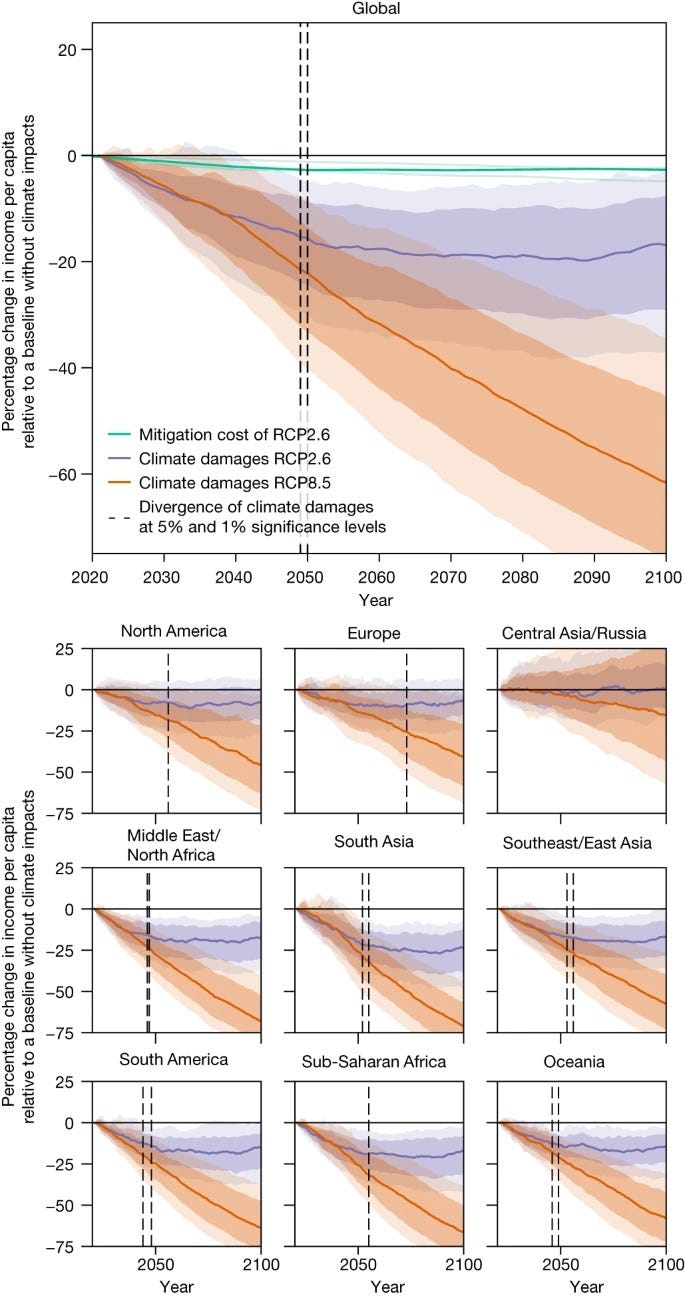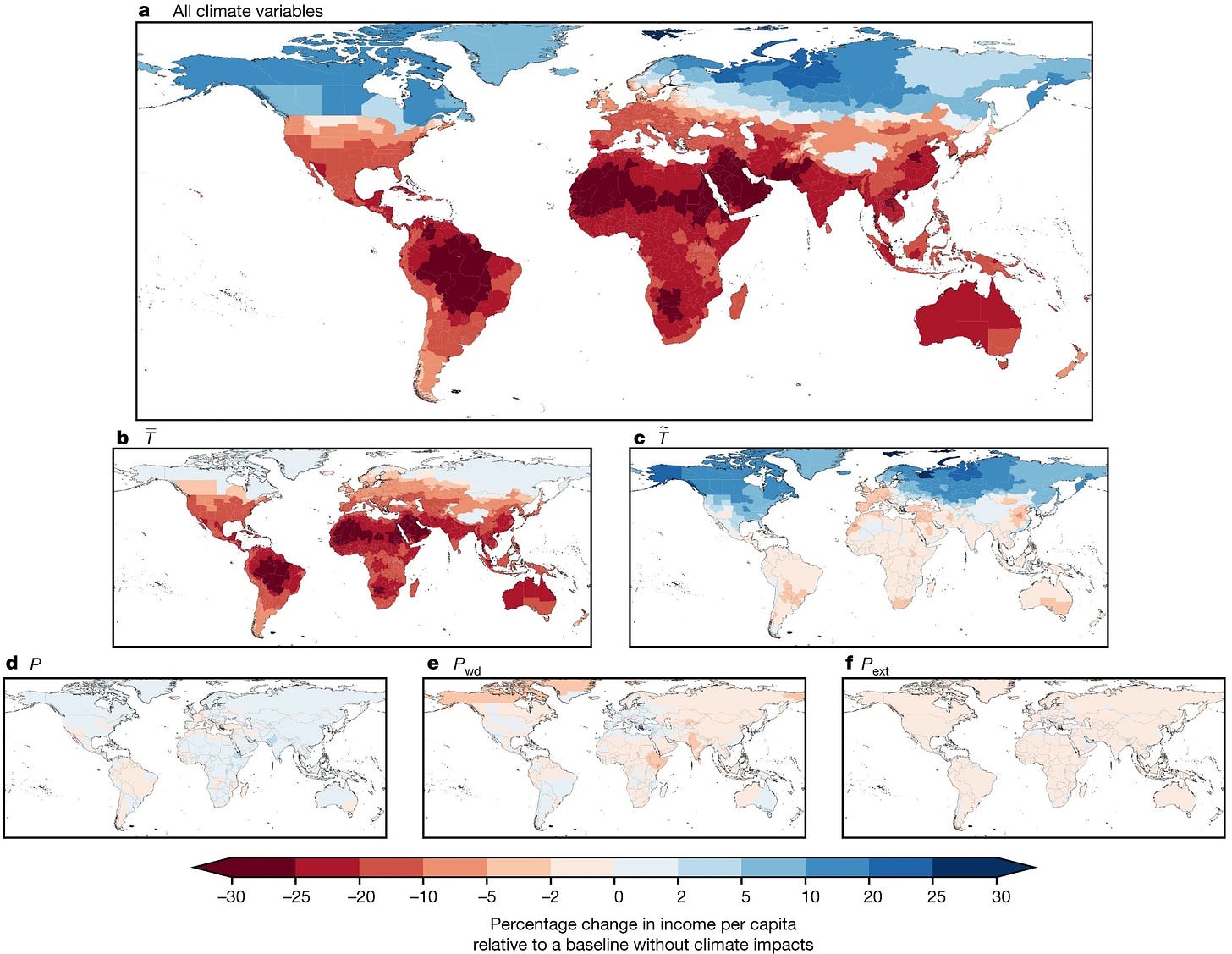TL;DR: The global economy will be one fifth smaller than it would have otherwise been in 2050 as a result of climate damage, according to a new study by the Potsdam Institute for Climate Impact Research (PIK) and published in the journal Nature.
(See more detail and analysis below, and in the video above. Cathrine Dyer’s journalism on climate and the environment is available free to all paying and non-paying subscribers to The Kākā and the public. It is made possible by subscribers signing up to the paid tier to ensure this sort of public interest journalism is fully available in public to read, listen to and share.)

The economic modelling of climate change, on which planners have relied for decades, is proving to have been catastrophically wrong about the scale of damages that will result from greenhouse gas (GHG) emissions.
Economic planners and policymakers will now need to focus their attention on how to manage economies that risk slipping into long-term decline, rather than managing for relentless growth. The implications for global leaders are profound. At the same time, opportunities to mitigate future damages abound, with the economic rationale for investing in them now magnified.
The Potsdam Institute study is based on recent empirical findings from more than 1,600 regions worldwide over the past 40 years. Researchers studied the economic impacts of climate change that have already occurred and the persistence of those impacts on economic growth over time. They used this information to construct projections at a regional and global level, based on established emissions pathways used in physical climate models.
Relative to a baseline without climate impacts, they estimate global damages will fall within a likely range of 11-29% by 2050, allowing for uncertainty. These damages from temperature increases are already baked in as a result of historical emissions and socio-economic inertia. The researchers used a range of emissions scenarios to estimate future damages, with a high emissions pathway (represented by RCP8.5) delivering global economic damages as high as 60% by 2100. Damages to which we are already committed outweigh, by a factor of six, the cost of mitigating emissions to limit global warming to 2˚C.
The commitment and divergence of economic climate damages versus mitigation costs
Source: Kotz, Levermann & Wenz, 2024 paper
A further devastating finding from the study is the level of inequity that economic damages will impose. Co-author Anders Leverman said:
“Our study highlights the considerable inequity of climate impacts: We find damages almost everywhere, but countries in the tropics will suffer the most because they are already warmer. Further temperature increases will therefore be most harmful there. The countries least responsible for climate change, are predicted to suffer income loss that is 60% greater than the higher-income countries and 40% greater than higher-emission countries. They are also the ones with the least resources to adapt to its impacts. It is on us to decide: structural change towards a renewable energy system is needed for our security and will save us money. Staying on the path we are currently on, will lead to catastrophic consequences. The temperature of the planet can only be stabilized if we stop burning oil, gas and coal.”
The injustice of climate damages applies across two dimensions, firstly on the basis of culpability for historical emissions and secondly, based on existing levels of socio-economic welfare. Those who are most vulnerable and have done the least to contribute to climate change are likely to suffer the worst economic damages. However, according to lead author Maximilian Kotz,
“Strong income reductions are projected for the majority of regions, including North America and Europe, with South Asia and Africa being most strongly affected. These are caused by the impact of climate change on various aspects that are relevant for economic growth such as agricultural yields, labour productivity or infrastructure.”
The injustice of committed climate damages by cumulative historical emissions and income.
Global damages overall are estimated to be at 38 trillion dollars in 2050 (with a likely range of 19-57 trillion dollars). This is likely to be a conservative estimate as it is derived from the effects of rising temperatures, rainfall changes and temperature variability, but does not account for other weather extremes such as storms or wildfires, which would raise the costs even further.
Study co-author Leonie Wenz points out:
“Our analysis shows that climate change will cause massive economic damages within the next 25 years in almost all countries around the world, also in highly developed ones such as Germany, France and the United States. These near-term damages are a result of our past emissions. We will need more adaptation efforts if we want to avoid at least some of them. And we have to cut down our emissions drastically and immediately – if not, economic losses will become even bigger in the second half of the century, amounting to up to 60% on global average by 2100. This clearly shows that protecting our climate is much cheaper than not doing so, and that is without even considering non-economic impacts such as loss of life or biodiversity.”
The committed economic damages of climate change by sub-national region and climatic component
Ka kite ano
Bernard and Cathrine



















Share this post